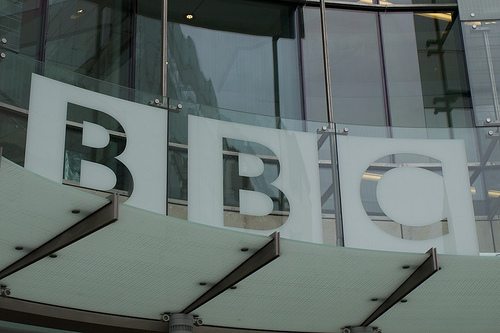A Licence to Thrill
The past few weeks have seen a growth in support for the proposed lowering of TV licence fees, with a recent poll in The Sunday Telegraph suggesting that 70% of voters felt the cost should either be cut or abolished altogether.
Debate over whether the licence fee, which currently stands at £145.50, should be lowered or even scrapped comes at a worrying time for the BBC, with several behind-the-scenes scandals still lingering in the public conscience. The ongoing Yewtree investigations have implicated several high profile names at the corporation, whilst outrage remains over the excessive payoffs given to senior executives in recent dismissals.
But don’t we need TV licence fees to maintain standards at the BBC and allow them to continue to “inform, educate and entertain” us?
The BBC produces a wealth of high quality programming, and still attracts top writers, actors and producers almost 70 years since their first official broadcast.
Perhaps what they need to do is to be a bit more daring with what they put on offer – even with it being a very modern and multicultural organisation, the Beeb can have a tendency to remain conservative.
Strictly Come Dancing is currently in its 10th series, and as popular and entertaining as it is, the Saturday night juggernaut stands as a perfect example of shows that they know to be safe and risk-free ventures. If the BBC does want to demonstrate why we as a public need an independent broadcaster, maybe spicing things up a little would help the cause.
But don’t we need TV licence fees to maintain standards at the BBC and allow them to continue to “inform, educate and entertain” us?
If the BBC does fancy taking this route, it need look no further than to America, where numerous stations are continually producing high quality dramas and pieces that continue to be hugely successful each year during awards season – shows such as HBO’s Game of Thrones or AMC’s Breaking Bad are the most recent examples of programmes that have taken the world by storm.
There are examples closer to home as well. Channel 4 are a station constantly taking risks, providing funding for young writers or using its Film4 outlet to produce low-budget British films that go on to claim notable commercial success, such as Danny Boyle’s Slumdog Millionaire. Simply put, the Beeb needs to secure that big hit that can define the 2010s for them.
The British Broadcasting Corporation also walks the tight rope of having to entertain whilst remaining informative. Their constant task of trying to appeal to a wide audience is a difficult one to achieve – more youthful content is not going to excite a middle-aged audience, and neither is the Antiques Roadshow likely to inspire mass viewing in Warwick’s halls. The output is thus going to remain massively varied and aimed at a mix of demographics, yet the quality must remain strong in all areas.
The licence fee is equally important for other reasons, as the BBC continues to be recognised as a British symbol across the globe. People have come to depend on it as a source of independent journalism, especially in less free and independent areas of the world. Due to cutbacks however, the services offered overseas are only likely to decrease over time, and the corporation risks being cast adrift in the international television industry.
Britain needs the BBC and, as such, British people need to pay the licence fee. There are undoubtedly changes that need to be made, and as a provider of entertainment, not everyone will be happy all of the time. However, we don’t want Fox News-style broadcasts – we want interesting and informed discussion. More importantly, we want British television that we can be proud of.

Comments